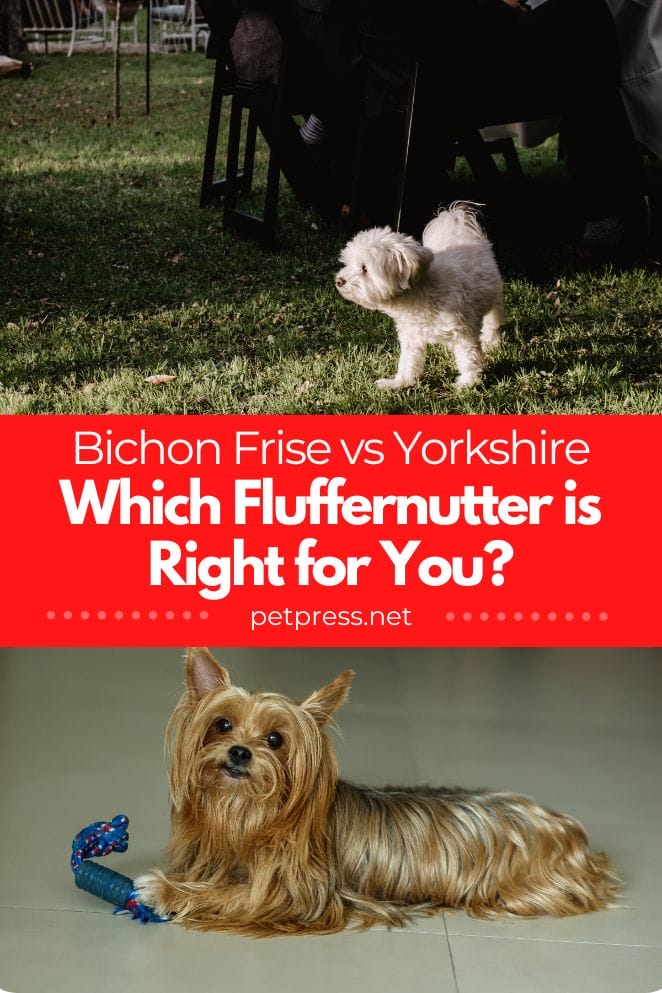
When it comes to choosing a small dog breed, there are many options to consider.
Two popular breeds that often come to mind are the Bichon Frise and the Yorkshire Terrier.
Both breeds are known for their playful, affectionate personalities and their small size, making them a great fit for many families.
But which breed is right for you?
In this article, we’ll explore the key differences between the Bichon Frise and the Yorkshire Terrier to help you make an informed decision.
Breed Overviews
Bichon Frise
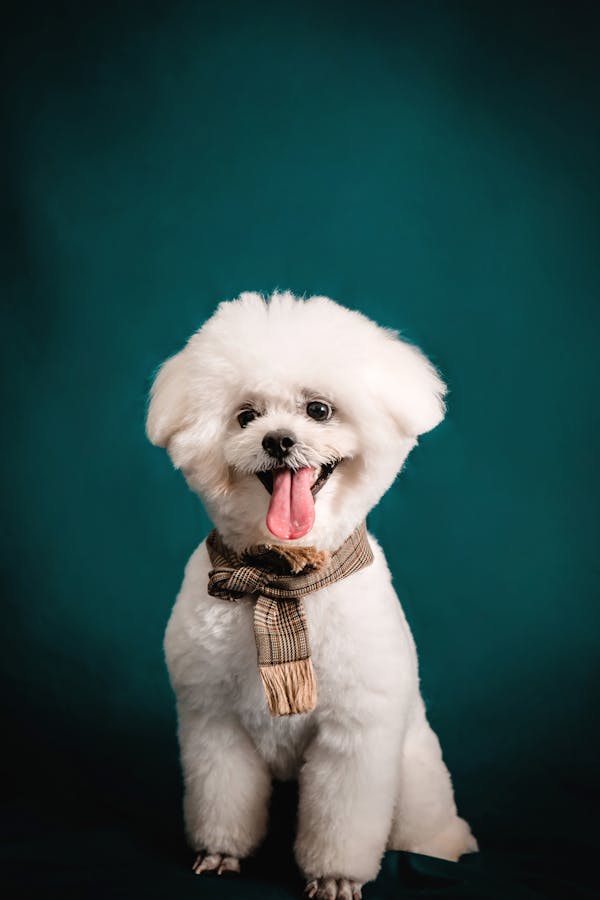
The Bichon Frise is a small, fluffy dog breed that originated in the Mediterranean.
They are known for their soft, curly coats and their playful, gentle nature.
Bichon Frises are highly social dogs that thrive on human interaction and require regular attention and exercise to stay happy and healthy.
They are relatively low-maintenance pets, requiring only occasional grooming and a moderate amount of exercise.
| Characteristic | Description |
| Size | Small; Height: 9.5-11.5 inches (24-29 cm) at the shoulder; Weight: 12-18 pounds (5.4-8.2 kg) |
| Coat Color | Predominantly white; can have shadings of buff, cream, or apricot around the ears or on the body |
| Temperament | Friendly, playful, affectionate, and cheerful; good with children and other pets; intelligent and easy to train |
| Average Life Span | 12-15 years |
Yorkshire Terrier
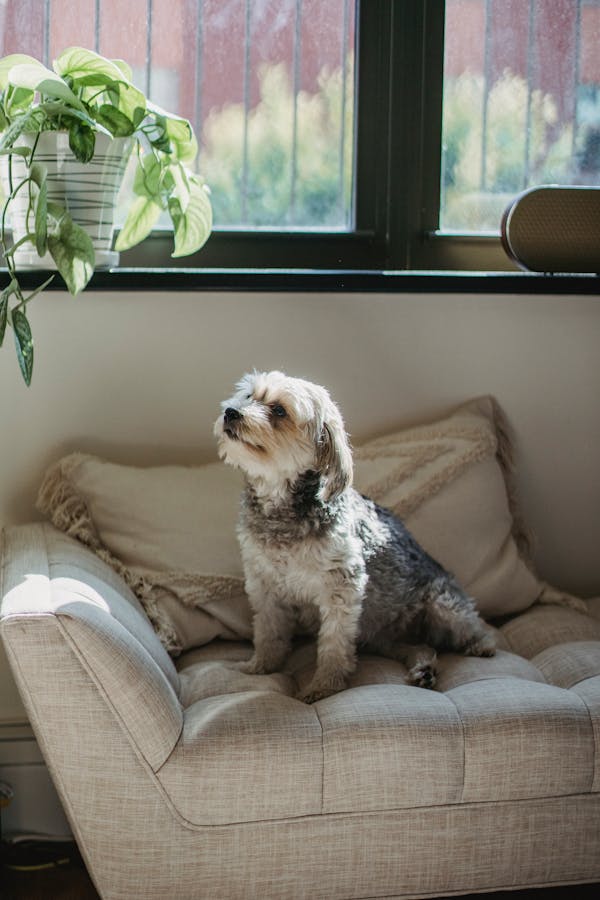
The Yorkshire Terrier, also known as the “Yorkie,” is a small dog breed that originated in Yorkshire, England.
They are known for their silky, fine coats and their spunky, confident personalities.
Yorkies are highly intelligent dogs that are easy to train and are often used as therapy dogs.
They are relatively high-maintenance pets, requiring regular grooming and a significant amount of exercise to stay healthy.
| Attribute | Description |
| Size | Small; typically weighing between 4 to 7 pounds (1.8 to 3.2 kg) |
| Height | About 7 to 8 inches (18 to 20 cm) at the shoulder |
| Coat Color | Steel blue and tan; puppies are usually born black and tan |
| Coat Type | Fine, silky, and straight; grows long if not trimmed |
| Temperament | Affectionate, lively, and courageous; can be stubborn and territorial |
| Average Life Span | 12 to 15 years |
Key Differences: Bichon Frise vs Yorkshire Terrier
| Attribute | Bichon Frise | Yorkshire Terrier |
| Size | Small; typically weighing 12 to 18 pounds (5.4 to 8.2 kg) | Small; typically weighing 4 to 7 pounds (1.8 to 3.2 kg) |
| Height | About 9.5 to 11.5 inches (24 to 29 cm) at the shoulder | About 7 to 8 inches (18 to 20 cm) at the shoulder |
| Coat Type | Curly, dense, and puffy; requires regular grooming | Fine, silky, and straight; grows long if not trimmed |
| Coat Color | Usually white, but can have cream, apricot, or buff shadings | Steel blue and tan; puppies are usually black and tan |
| Temperament | Playful, affectionate, and good with children and other pets | Affectionate, lively, and courageous; can be stubborn and territorial |
| Average Life Span | 14 to 15 years | 12 to 15 years |
| Exercise Needs | Moderate; enjoys walks and playtime | Low to moderate; enjoys short walks and indoor play |
| Grooming Needs | High; regular brushing and professional grooming required | High; regular brushing and trimming required |
| Origin | Mediterranean region, developed in France and Belgium | England |
| Common Health Issues | Allergies, dental issues, and hip dysplasia | Dental issues, luxating patellas, and tracheal collapse |
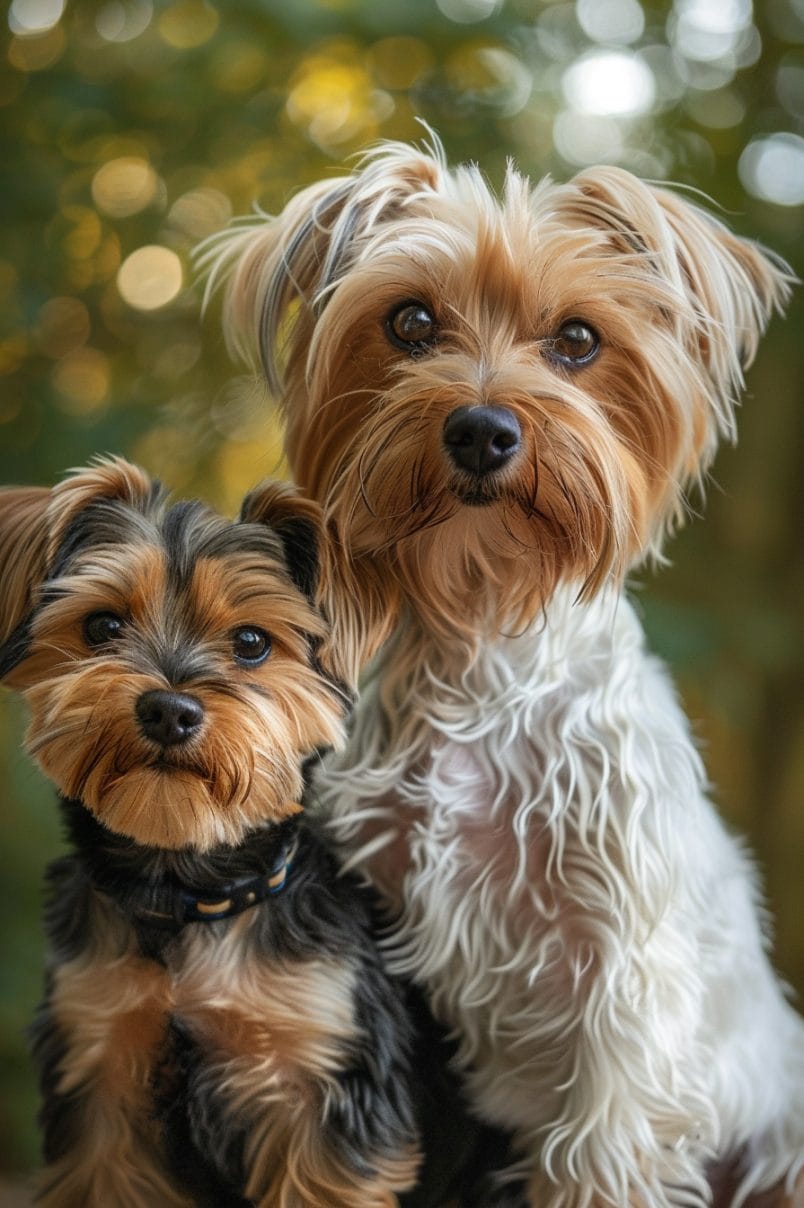
Choosing Between Bichon Frise and Yorkshire Terrier
Selecting the right breed for your lifestyle is essential to ensure a happy and fulfilling relationship with your pet.
Here’s a detailed look at key considerations to help you choose between a Bichon Frise and a Yorkshire Terrier.
Energy level
Bichon Frise
If you’re looking for a companion with moderate energy levels, the Bichon Frise might be a great match.
While they enjoy playtime and regular walks, they don’t require intense exercise.
They are content with moderate activities and are well-suited to apartment living or homes with smaller yards.
Their playful nature makes them good family pets, but they are also happy to relax and cuddle with their owners.
Yorkshire Terrier
Yorkshire Terriers, on the other hand, are energetic and require more frequent exercise and mental stimulation.
Despite their small size, they have a high energy level and a bold, spirited demeanor.
Regular walks, playtime, and interactive toys are necessary to keep them happy and prevent boredom.
Their need for activity makes them better suited for owners who can commit to providing regular physical and mental exercise.
Grooming
Bichon Frise
Bichon Frises have a dense, curly coat that requires regular grooming to keep it looking its best.
They need to be brushed several times a week to prevent mats and tangles and should be professionally groomed every 4 to 6 weeks.
While their coat is high-maintenance, they shed very little, making them a good option for people with allergies.
Yorkshire Terrier
Yorkshire Terriers also require a high level of grooming due to their fine, silky coat, which can grow long if not trimmed.
Regular brushing is essential to prevent tangles and keep their coat shiny and healthy.
Many owners opt to keep their Yorkie’s coat trimmed short to reduce grooming time.
Like the Bichon, Yorkies shed minimally but still need regular grooming to maintain their appearance.
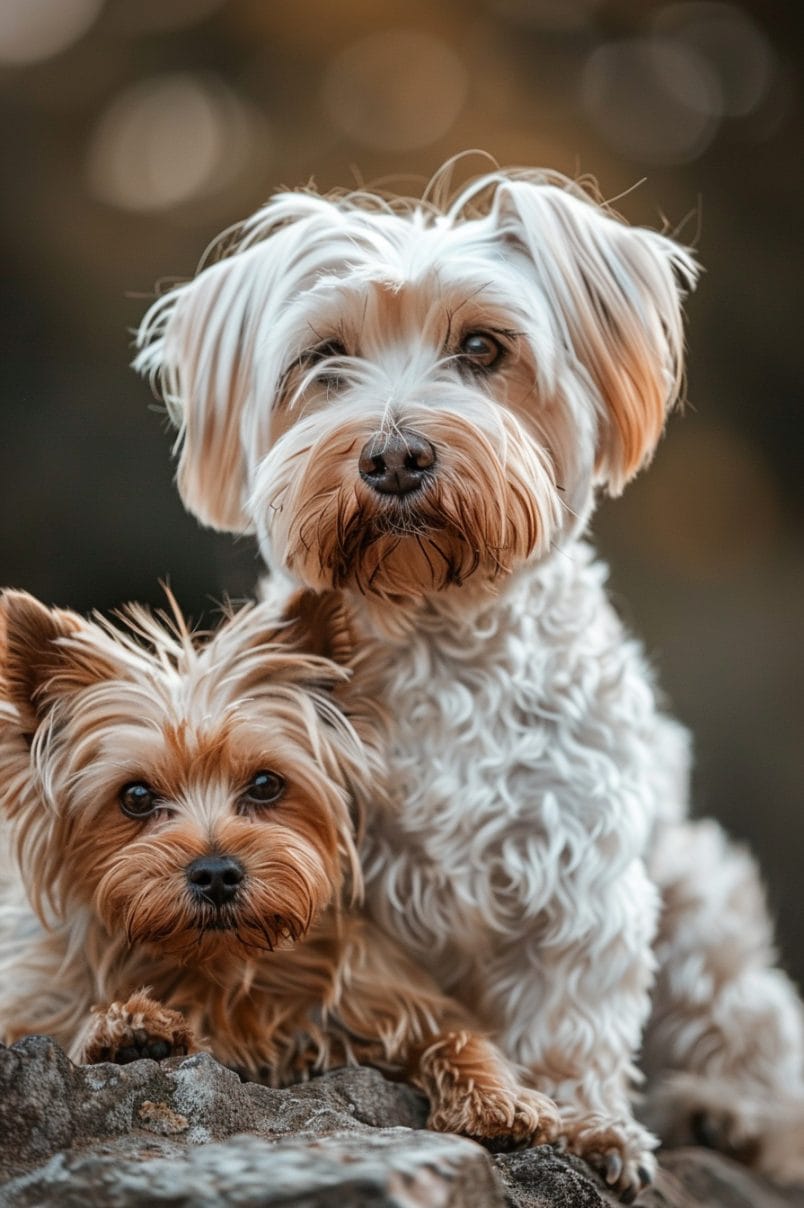
Training
Bichon Frise
Bichons are intelligent and generally easy to train.
They respond well to positive reinforcement techniques and enjoy learning new tricks.
Their friendly and eager-to-please nature makes them a joy to train, but they do require consistency and patience, especially during housebreaking.
Yorkshire Terrier
Yorkshire Terriers are also intelligent and capable of learning quickly.
They can be more stubborn than Bichons, requiring a firm but gentle hand in training.
Their keen intelligence and responsiveness make them excel in obedience training and even agility sports.
Yorkies thrive with structured training sessions and mental challenges to keep them engaged.
Potential shedding
Bichon Frise
Bichon Frises are known for their low-shedding coats, which produce less dander than many other breeds.
This makes them a good choice for people with allergies.
Regular grooming is essential to manage their coat, but their minimal shedding means less hair around the house.
Yorkshire Terrier
Yorkshire Terriers also shed very little, as their hair is more like human hair than fur.
This low-shedding characteristic makes them suitable for people with mild allergies.
However, their fine hair can still create tangles and mats if not properly groomed, so regular care is necessary.
Living Environment
Bichon Frise
Bichons adapt well to various living environments, including apartments and homes with limited outdoor space.
They are sociable and thrive on human interaction, making them ideal for families, singles, and seniors.
Their moderate exercise needs mean they don’t require a large yard but do enjoy outdoor play and walks.
Yorkshire Terrier
Yorkshire Terriers are also adaptable to different living environments but may need more space for their active nature.
They do well in apartments as long as they receive adequate exercise and mental stimulation.
Yorkies are known for their bold and sometimes territorial behavior, so early socialization is important to ensure they get along with other pets and people.
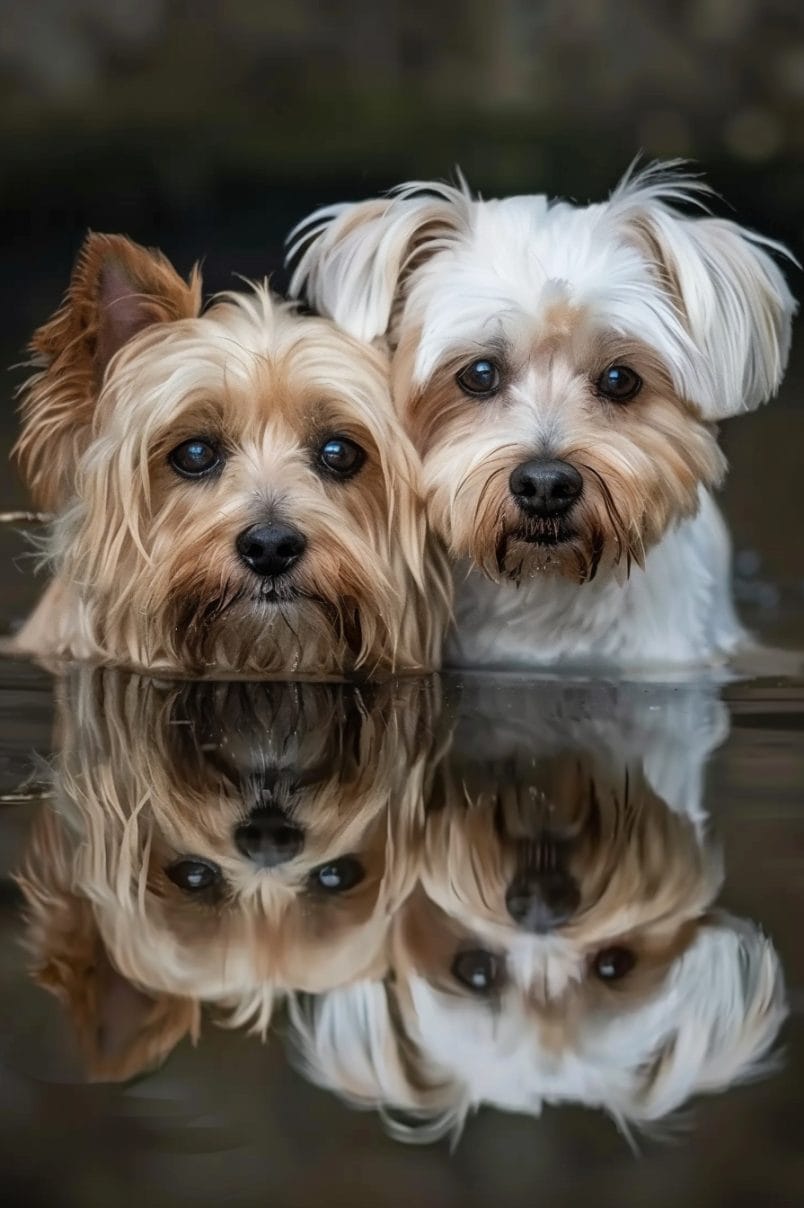
Conclusion
Ultimately, when it comes to choosing between a Bichon Frise and a Yorkshire Terrier, your decision should reflect your unique preferences and lifestyle.
Both breeds offer delightful companionship and can enrich your life with love and joy.
By taking into account factors like your energy level, grooming preferences, and training needs, you can make a well-informed choice that aligns with your individual circumstances.
Remember, there’s no one-size-fits-all answer.
It’s about finding the furry friend that best suits your personality and daily routines.
Whether you’re drawn to the playful nature of the Bichon Frise or the spirited charm of the Yorkshire Terrier, both breeds have something special to offer.
So take your time, consider your options, and welcome the perfect furry companion into your life.
FAQs
Both breeds can be good with children, but it’s essential to socialize them well and teach children how to interact with dogs gently and respectfully.
Bichon Frises have a low-shedding coat, while Yorkshire Terriers have a moderate-shedding coat. Regular grooming can help reduce shedding in both breeds.
Both breeds can thrive in apartment living, but they do require regular exercise and mental stimulation to prevent boredom and destructive behavior.
Yes, both breeds can be trained for agility, but it’s essential to consider their energy levels and physical abilities before starting agility training.
- Does Cat Litter Melt Ice? The Complete Guide to Winter Safety - January 30, 2026
- Happy Tail Dogs: Understanding This Common Canine Condition - January 29, 2026
- How Cold Can Outdoor Cats Handle? Feline Winter Safety - January 27, 2026


GIPHY App Key not set. Please check settings